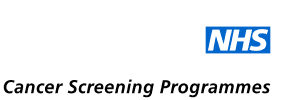Breast Cancer

Breast Cancer |
 |
|
|
What is the incidence of breast cancer?In 2005 there were 38,212 new registrations of breast cancer in women in England, and 250 in men.1. One in 9 women will develop breast cancer at some time in their life. The estimated risk of developing it for each of the other age groups has been calculated as:
Age factorsThe incidence of breast cancer increases with age. Eighty per cent of cases occur in post-menopausal women. The risk of developing breast cancer continues to rise as women get older. Breast cancer is extremely rare in women in their teens or early twenties and uncommon in women under 35. After this age the risk begins to increase, rising sharply after the menopause. WorldwideBreast cancer is the most common cancer in women worldwide. It accounts for about 25 per cent of all female malignancies and the proportion is higher in women in western, developed countries. Incidence has been rising in many parts of the world, including the USA, Canada, Europe, the Nordic countries, Singapore and Japan.2 Over one million2 new cases occur each year worldwide. How many people die from breast cancer in England?10,243 women and 59 men died from breast cancer in 20061 By 1999, overall mortality from breast cancer was just over 20 per cent lower than the levels in the mid-1980s.4 SurvivalThe estimated relative five-year survival rate for women diagnosed in England and Wales in 2001-2003 was 80 per cent, compared with only 52 per cent for women diagnosed in 1971-19753. Women who are diagnosed with breast cancer do not all go on to die from the disease. The Association of Breast Surgery at British Association of Surgical Oncologists (BASO) carried out an audit of breast cancers detected by screening in 2000-01 and found that the national survival rate at five years was 96.4 per cent (England, Wales and Northern Ireland).5 The stage at which a woman has breast cancer diagnosed greatly influences her survival chances. In general, the earlier the detection, the greater the chance of survival. What are the causes of breast cancer?It is not clear exactly what causes breast cancer but it is thought that there are many risk factors, some already well established and some still being investigated. Age is strongly linked with breast cancer. The risk of breast cancer increases with age. Two breast cancer genes have been identified; BRCA1 and BRCA2. These genes have been found in approximately 85 per cent of families with four or more cases of breast cancer diagnosed under the age of 60. However, only about five per cent of all breast cancer cases (fewer than 2000 per year) are thought to be caused by breast cancer genes. This is the subject of current research. There is a higher risk of breast cancer in the south of England and in Wales than in the north of the UK. The risk of breast cancer also appears to be higher in women from more affluent backgrounds. There is an increase in risk when people move from low risk to high risk countries. For example, Japanese immigrants to the USA increase their risk of breast cancer and acquire incidence rates similar to the American population within two generations. This suggests that risk may be linked to environmental and behavioural factors. Risk FactorsKnown risk factors for breast cancer are:
being female
[1]Cancer Research UK 2008
|
Breast screening programme index What happens at a What are the risks of breast screening? Frequently Asked Questions (FAQs) DCIS (Ductal Carcinoma Diethylstilbestrol (DES) exposed women Breast cancer | ||||||||
|
||||||||||